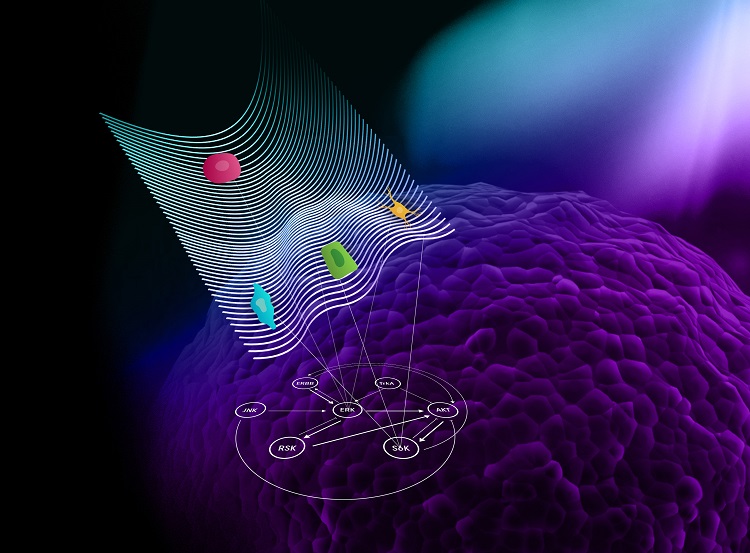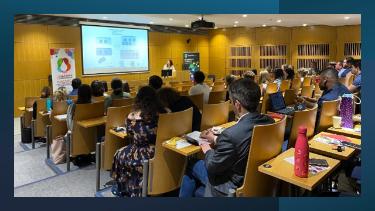cSTAR concept unveiled in Nature

(Copyright Systems Biology Ireland/Oleksii Rukhlenko)
Researchers at Systems Biology Ireland (SBI) have developed a novel approach to understand the distinction between pathological and healthy states of human cells.
The cells in the human body have a remarkable ability to change. Normally, this ability is used to replenish or repair tissues. However, in diseases such as cancer, cells can adopt states that harm the body. SBI researchers have now developed a method, cell state transition assessment and regulation (cSTAR), which can distinguish healthy and diseased cell states using molecular data, and identify the key molecules that characterize the different states. By revealing the underlying decision-making process, cSTAR also informs scientists how to purposefully change cell states using targeted manipulations, e.g. specific drugs.
“In this paper, we have built on the fundamental work of SBI researchers to understand cellular gene and protein networks that control the life of cells,” said Prof. Boris Kholodenko, lead author on the study. “Like many leading laboratories in the world, we have a long-standing interest in understanding how to control the cell states or fates. Where our work differs is in its use of machine learning, advanced computational and physical approaches and models with the ultimate goal of creating digital twins to precisely model human diseases and targeted interventions to cure these diseases.”
Prof. Walter Kolch, Director of SBI and co-author, said, “Controlling cell state transitions is a holy grail in biology and biomedicine. Being able to design and exert such control reliably and with precision opens many doors.”
Kolch continued, “For instance, we could force cancer cells to stop growing and spreading; we could accelerate cell differentiation to repair tissues more efficiently; we could prevent cells from premature death in degenerative diseases, and so on. Like the invention of the microchip allowed us to design a range of smart tools that control our car, microwave, phone and heating, cSTAR is a universal tool that will allow us to control cell states for biomedical benefit.”

Prof. Boris Kholodenko and Prof. Walter Kolch (photo credit Systems Biology Ireland/Vincent Hoban)
The team at SBI are currently deploying and honing cSTAR for addressing major challenges in human diseases. One focus is cancer, where they believe that cSTAR will help to design more effective drug combinations that can be personalised to individual patients using digital twin models. Another focus for the future is infectious diseases, such as tuberculosis.
The paper, ‘Control of cell state transitions', is available online at https://www.nature.com/articles/s41586-022-05194-y.

